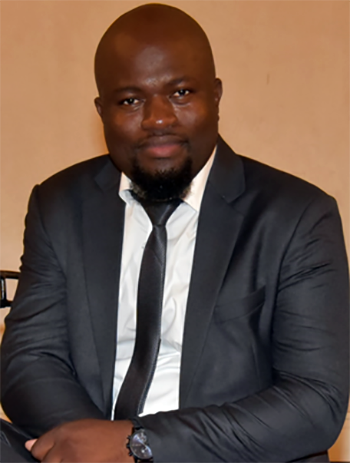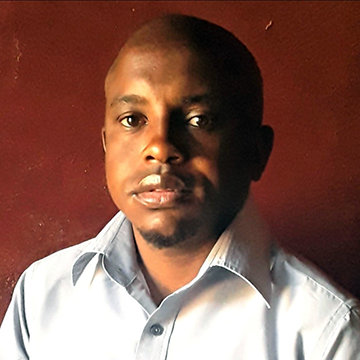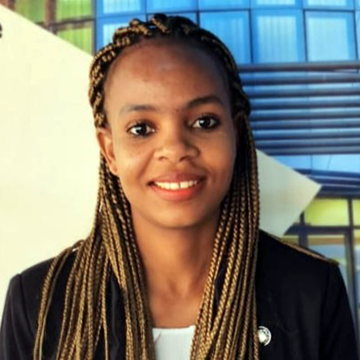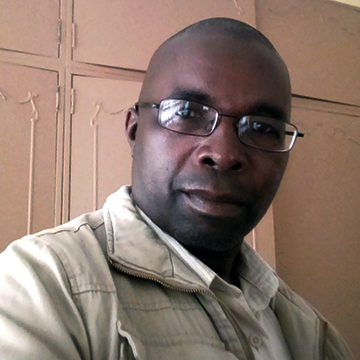News & Events
NanoWS students make their US (water)mark

Prof Thabo Nkambule (Acting Director: NanoWS)
The Nanotechnology and Water Sustainability (NanoWS) research unit in Unisa’s College of Science, Engineering, and Technology (CSET) continues to push the boundaries as four of its students complete a graduate-level online course in water chemistry with the University of Massachusetts (UMass), USA. The course covers important equilibrium chemistry, especially designed for those interested in water-treatment systems. It has been offered by UMass since the 1980s, and is required of all graduate students who intend to work in the area of water quality, as well as drinking water or wastewater treatment.
In early 2020, the course was offered to both UMass and Unisa students in a synchronous format using the Zoom platform as well as a regularly updated open website. The acting director of NanoWS, Professor Thabo Nkambule, says Unisa and UMass signed a memorandum of understanding (MoU) to nurture the research, teaching, and learning collaborations between the two institutions.
The collaboration dates back to 2011 when Professor David Reckhow of UMass spent his sabbatical leave in Johannesburg. Reckhow has been collaborating in various ways with Professors Bhekie Mamba, CSET’s Executive Dean, and Nkambule. He further opened up his graduate-level course in Water Chemistry to a group of Unisa graduate students through synchronous Zoom lectures.
“The two institutions have been pursuing independent funding for collaborative work on water, including with the US State Department. Unisa remains a leader in open, distance, and e-learning (ODeL), especially as evidenced through this difficult period of the Covid-19 pandemic. The completion of this online course by our students further demonstrate Unisa’s leading role in affording education opportunities for its students, especially through online measures.”

Alfred Kajau (Master’s student: MSc Chemistry, Unisa)

Nomcebo Khumalo (PhD student: Science, Engineering, and Technology, Unisa)

Sikelelwa Ndiweni (PhD student: Science, Engineering, and Technology, Unisa) won the South Africa Woman in Science: TATA postgraduate scholarship award for 2018 in the master’s student category.

Coster Kumunda (PhD student: Chemistry, Unisa)
The students could not hold back their excitement and gratitude to NanoWS and UMass. Coster Kumunda, who is studying towards his PhD in Chemistry, says the course was very beneficial, particularly the detailed coverage of researches and case studies of the effects, remedial actions, and applications of metals and other compounds in water.
Nomcebo Khumalo, a PhD student in Science, Engineering, and Technology, added that overall, the class provided further enlightenment on natural waters and the chemistry behind water pollution, thus providing knowledge on how to improve chemical water treatment methods.
“It was a wise decision to register with UMass for a course that equipped me with the knowledge that is relevant for my PhD research project. The lectures, homework, assignments, and exams were all well planned and l could easily strike a balance with my research project. I will apply the knowledge gained from the course when working in the lab or interpreting water samples analysis,” expressed Sikelelwa Ndiweni, a PhD student in Science, Engineering, and Technology
Meanwhile, Alfred Kajau, a master’s student in Chemistry, says the course was exciting, challenging and very educational. “I gained a wealth of knowledge in many areas of water chemistry including kinetics, thermodynamics, acid-base chemistry and precipitation chemistry of aquatic chemical species. I also intend to use the knowledge in potential future employment in the water industry.”
The NanoWS unit remains committed to being a wellspring of top-flight research boasting of state-of-the-art top laboratory infrastructure for the training of master’s and doctoral students by a star team of academics.
*By Nancy Legodi, Acting Journalist, Department of Institutional Advancement
Publish date: 2020/06/04
